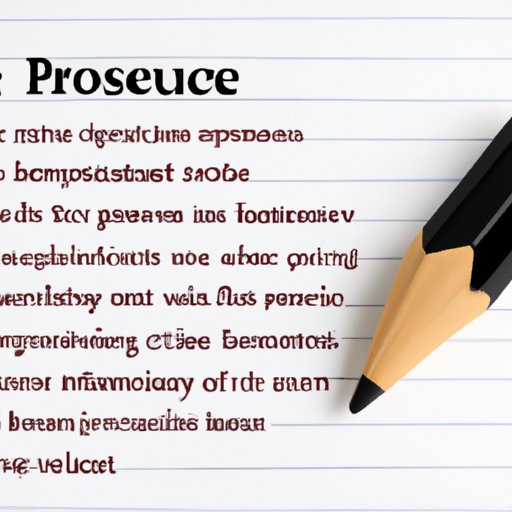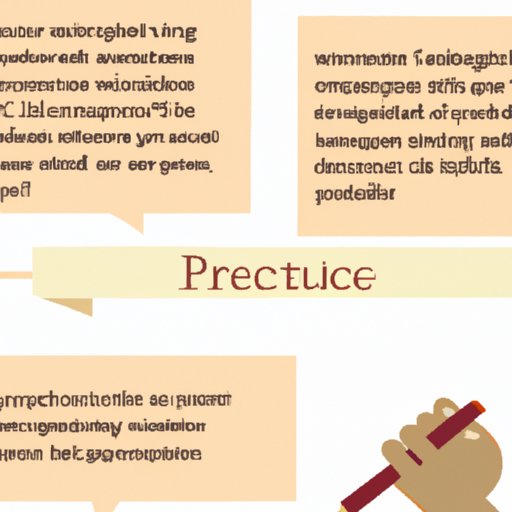Introduction
Persuasive writing is a form of writing that is designed to convince readers of a particular viewpoint or opinion. It is often used in business, politics, and other types of discourse to influence decisions or sway opinions. The purpose of persuasive writing is to present a well-reasoned argument that will convince the reader to accept the writer’s point of view.

An Overview of Persuasive Writing
At its core, persuasive writing is about making an argument. This means that the writer must present evidence and facts to support their claims. It is important to note that persuasive writing does not rely on emotion or personal opinion. Instead, it should be based on logic and facts. To be successful, persuasive writing must be clear, logical, and easy to follow.
When it comes to examples of persuasive writing, some of the most common forms are essays, letters to the editor, speeches, and advertisements. In each of these cases, the goal of the writer is to make a convincing case for their point of view. In order to do this, they must use facts and evidence to support their claims and provide counterarguments to any potential objections.
When writing persuasively, there are some key tips to keep in mind. First, it is important to be aware of the audience and tailor the argument accordingly. It is also important to be concise and to the point, as well as to be sure to back up any claims with evidence. Finally, it is important to be respectful and acknowledge any opposing views.
Crafting a Persuasive Argument
In order to effectively craft a persuasive argument, it is important to structure the writing properly. This means organizing the argument into distinct sections that logically follow one another. Each section should have a clear purpose and should build on the previous points. Additionally, it is important to ensure that the language used is appropriate for the intended audience.
It is also helpful to analyze different types of persuasive writing. This can help writers understand the techniques used by others and gain insight into how to effectively structure their own arguments. By looking at examples of persuasive writing from different contexts, writers can get a better understanding of how to make their own arguments more compelling.
Using Rhetoric to Make Your Writing More Convincing
Rhetoric is an important tool in persuasive writing. It is the art of using language to persuade and influence. When used correctly, rhetoric can be very effective in helping to make a persuasive argument. There are several different types of rhetoric, including ethos, pathos, and logos. Ethos is the appeal to authority, pathos is the appeal to emotion, and logos is the appeal to logic.
In order to use rhetoric effectively, it is important to understand how each type works and when it is appropriate to use them. For example, ethos is best used when citing experts or authoritative sources, while pathos is better suited to evoke emotion and empathy. By understanding how to use rhetoric effectively, writers can create a more convincing argument.

Exploring the Benefits of Persuasive Writing in Education
Learning persuasive writing can be beneficial for students in many ways. One of the primary benefits is that it can help develop critical thinking skills. By learning how to craft an argument and evaluate evidence, students can learn how to think critically and make informed decisions. Additionally, persuasive writing can help strengthen communication skills, as it requires the writer to clearly express their ideas and defend their position.
Conclusion
In conclusion, persuasive writing is a powerful tool that can be used to convince readers of a particular viewpoint or opinion. It is important to understand the basics of persuasive writing, such as how to structure an argument and use rhetoric effectively. Learning persuasive writing can also be beneficial for students, as it can help develop critical thinking and communication skills. With the right approach, persuasive writing can be a powerful tool for influencing others.
(Note: Is this article not meeting your expectations? Do you have knowledge or insights to share? Unlock new opportunities and expand your reach by joining our authors team. Click Registration to join us and share your expertise with our readers.)
